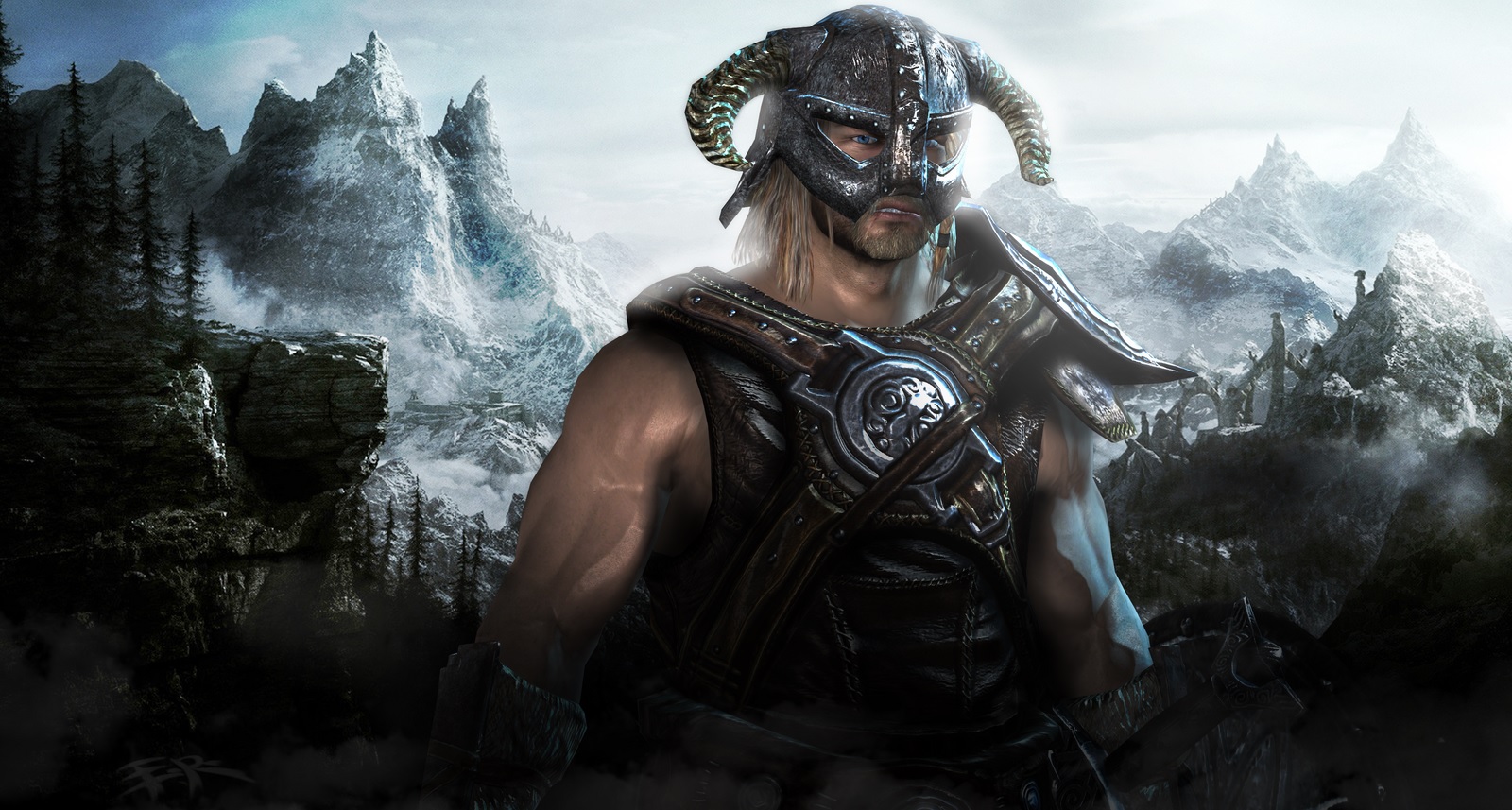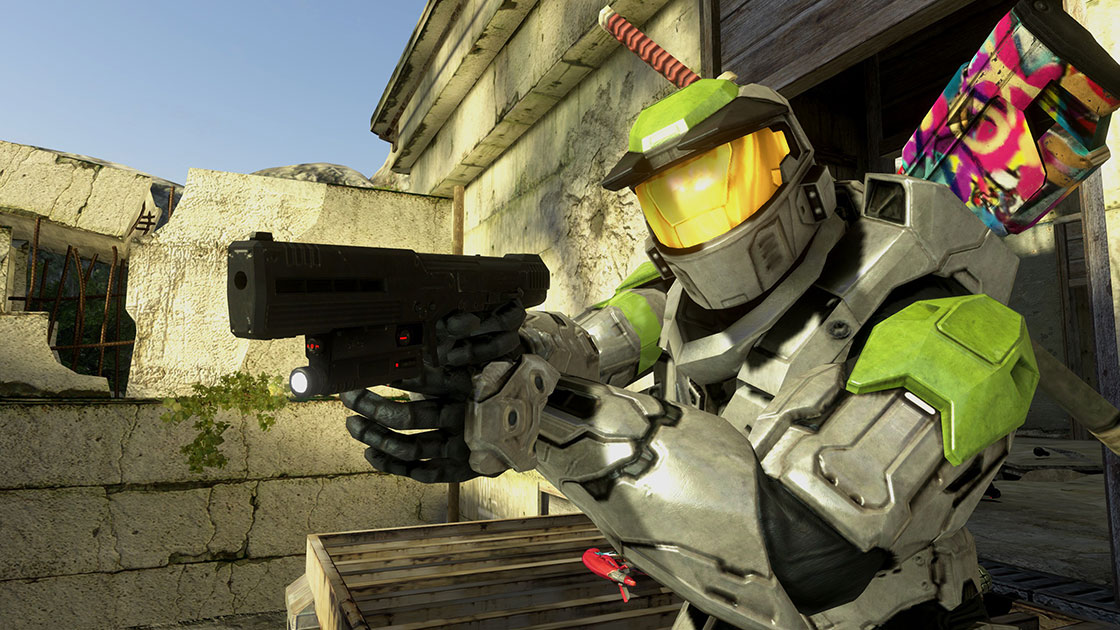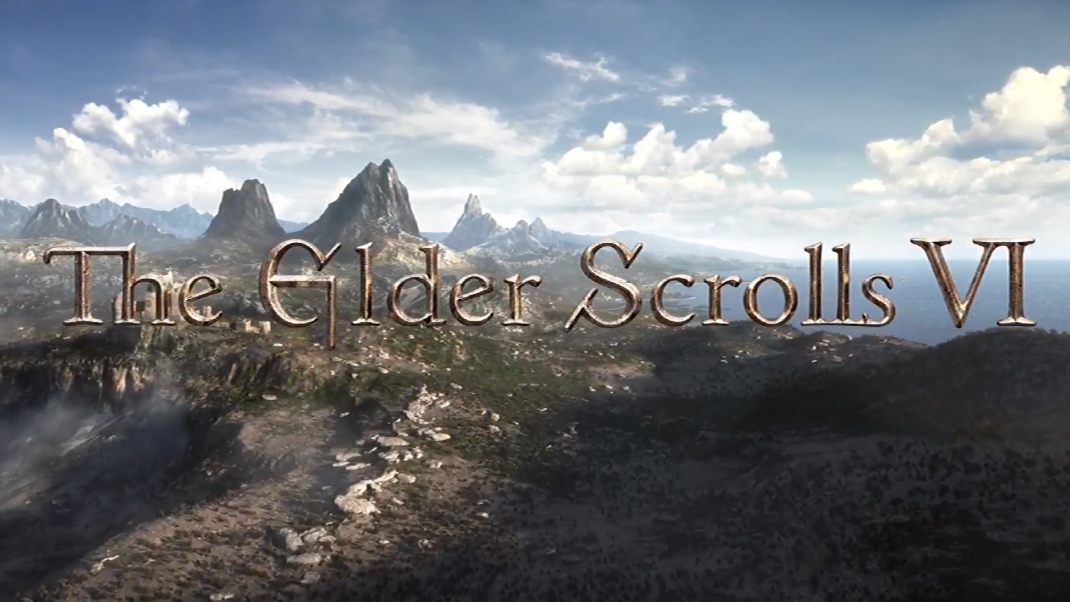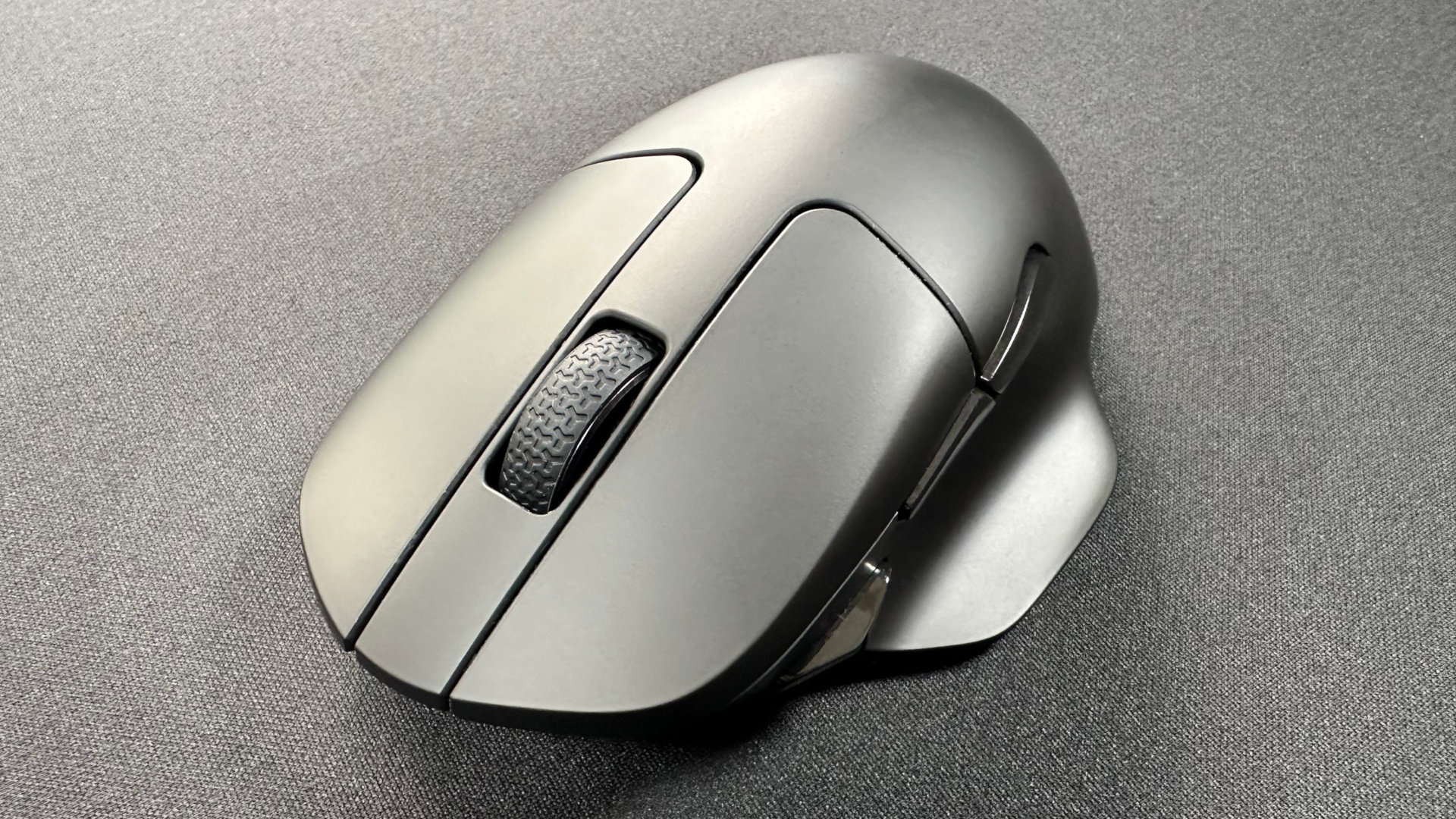What Microsoft buying Bethesda means for PC gamers
The PC Gamer team reacts to perhaps the biggest gaming news of 2020.

Microsoft announced today that it has acquired ZeniMax Media, parent company of Bethesda Softworks, who own the studios responsible for The Elder Scrolls, Fallout, Doom, Dishonored and many, many more. And while it's no coincidence that Microsoft is about to launch a new console, both Bethesda and Microsoft are big players on PC, too. And so we asked the PC Gamer team a not-so-simple question: what does this acquisition mean for PC gaming?
Mega-corporations are at it again, and that's rarely in consumers' best interests
This is quite a monopoly Microsoft is building among today's most loved game franchises and publishers, and I'm not convinced of the long-term benefits of such an arrangement. While today's announcement has many of us musing about the possibility of Fallout: New Vegas 2, it's difficult to think of many monopolies in history that have been beneficial to the consumer once a company has a complete stranglehold on an industry. Microsoft still has plenty of competitors, so perhaps I'm being melodramatic, but the more independent studios out there, even large and wealthy ones, the better.
A company with an unfathomably large amount of money gobbling up another mega-corporation does not sit well with me in almost any regard—and Microsoft's not spending $7.5B to keep the gaming landscape as is.
On the plus side, Microsoft's sure to offer a steady hand to these developers financially speaking, and with a degree of stability and certainty that few other companies in the world are able to offer. With that, one would assume, comes the ability to play the long game in development and support—if Microsoft's corporate strategy never significantly changes, that is. —Jacob Ridley

It sounds like a console power play, but this will end up meaning something more
The timing here is notable; a major acquisition from one of the big console manufacturers, announced the day before pre-orders of the new Xbox go on-sale. It's a big dick power play, and one that will likely do some damage. The implication here is that the next Elder Scrolls game will not be on PS5. That's going to be a dealbreaker for plenty of people weighing up which console to buy.
Keep up to date with the most important stories and the best deals, as picked by the PC Gamer team.
Of course, Microsoft games already come to PC. Microsoft games now even come to Steam. And Microsoft's Game Pass service is already on PC, too. In that sense, there's nothing to worry about for us, and, if you subscribe to Microsoft's subscription service, there might even be cause to celebrate. Bethesda, Id, Arkane—their games, both old and new, will be coming to Game Pass.
Nevertheless, I can't help but feel that this is Microsoft's Disney moment, where, oh shit, suddenly this one company owns a significant portion of the media that you love. And, as Disney's acquisition of Lucasfilm and Marvel continues to prove, there are plenty of downsides to one corporation owning so much of the mass media landscape. Even discounting what this will mean for the people working at any of the individual studios just bought, it raises plenty of questions around things we've previously taken for granted. Will the next Elder Scrolls game be as open and moddable as its community has come to expect, or will it be locked down with proprietary systems or monetisation systems that make that impossible?

Sure, Microsoft has been pretty good about recent PC releases, but this is also the company that gave us GfW Live and UWP apps. Its entire corporate strategy could change at any time—especially if acquisitions such as this lead to the Xbox Series X being a success—and that could easily trickle down to every studio they've just bought, and every game that they go on to make.
I'm especially wary because Arkane is one of my favourite studios. Will they be left alone, free to create brilliant, systems-driven games as a palette cleanser for people browsing their Game Pass list; or will they be sent to the live service mines, because games that never end are a better fit for a service that has to do everything in its power to keep you subscribed? —Phil Savage
Guess it makes sense that Bill Gates' company owns DOOM after this. pic.twitter.com/Mg4C0jQUBVSeptember 21, 2020
QuakeCon 2021, brought to you by Microsoft
Microsoft owns Doom now. And id Software. That at once feels appropriate, given the companies' intertwined history back in the early golden age of floppy disks and shareware, and also totally bizarre, like your high school's biggest metalhead marrying the rich girl 20 years later. Doom and Quake are inseparable PC gaming icons, and at least for now, they feel safe in Microsoft's hands, which for the past five years have been motivated to treat the PC well. Those communities will certainly provide extra encouragement.
I really hope that QuakeCon will continue on as a tradition. That will be an indicator of Bethesda's continued independence and Microsoft supporting id's unique history. The fact that Minecon has continued on should mean that we'll continue to see the biggest LAN in North America stay in place, at least whenever COVID-19 is finally under control in the US.
I also hope this means that Bethesda's games will inherit some of Microsoft's recent technical gloss. Gears Tactics had one of the best graphics settings menus of any game on PC in recent history, and obviously Microsoft Flight Sim has become a showcase for the platform. —Evan Lahti
Microsoft had to do something to shore up its lack of exclusives
This looks like a brute force move to restore Microsoft's 1st party studios to relevance. Whilst grinding Lake of Shadows this weekend, one of my teammates noted that there wasn't a single exclusive game on Xbox that would compel you to buy an Xbox Series X over a PlayStation 5. Buying Bethesda won't change the launch lineup, but long term it will mean that console gamers who want to play Skyrim and Fallout have a tough choice to make. The likes of Doom, Wolfenstein, and whatever Arkane makes after Deathloop are nice upside to have for Microsoft, but to me this is really about those two huge RPG series.
I also think that the reaction to Halo Infinite has weirdly forced Microsoft's hand. Obviously, you don't make a $7.5B purchase because people took the piss out of some weak sauce screenshots. In fact, there have been rumours since 2018 about Microsoft making a game-changing acquisition (EA has been touted in the past), so this deal will have been long in the making. But with Halo no longer feeling anything like the crown jewel it once was, Microsoft knew it needed an injection of AAA exclusives, and couldn't afford to wait. It turns out you can't sell a new console on Game Pass alone, but you probably do it with Game Pass + Elder Scrolls VI. Quite what this means for us on PC remains to be seen. Hopefully not much. In recent years Microsoft has largely made good on its word regarding crossplay and simultaneous releases. One would hope there's no reason to change that, but rest assured we're already asking. —Tim Clark
Right now, Game Pass is a great/fair deal for developers. I worry a bit about how it may not be a great deal in the future. If game streaming becomes the best way to get your game in front of customers and it is Game Pass or bust, that will be a lot of power they control.(4/4)September 21, 2020
Great for Xbox Game Pass, but shit if you’re worried about monopolies
Microsoft has earned itself a lot of goodwill through Xbox Game Pass, which remains exceedingly good value, even with the recent price hike. The prospect of yet more massive games from some of the biggest and brightest studios around isn’t something that’s going to make me turn up my nose, but Microsoft already leverages so much control over this industry, and I’m troubled by the prospect of it becoming even more influential. I don’t want all my games brought to me by Microsoft, or any one publisher.
Years ago, we celebrated the rise of independent developers and big publishers loosening their grip, but now things are starting to look more homogeneous than ever before. With all these studios under the Xbox Game Studios umbrella, Microsoft gets to dictate the shape of the next generation, from pricing standards to the future of cloud and subscription gaming, and Microsoft will just do what benefits Microsoft. If you’re already invested in the ecosystem it’s created, maybe that will suit you fine, but this is a huge industry and we should have more than one option. —Fraser Brown
Maybe we'll get Elder Scrolls 6 a little earlier now
We've heard the patter from Bethesda for the past couple years—first we'll get Starfield, then we'll get Elder Scrolls 6. But personally, if I'd just spent $7.5 billion on Bethesda, I'd be like… "Sooooo maybe we could do Elder Scrolls 6 first?" I mean, all due respect to whatever Starfield is, but I have no idea what Starfield is other than it's an RPG set in space and that it has a boring name. (It's the same name as the best Windows 95 screensaver, coincidentally. —Ed.)
I do know what Elder Scrolls 6 is, though: it's the game I want pretty much more than anything else, and I'm definitely not alone. It's also the game that is probably scheduled to come out closer to 2030 than 2020.
Maybe for the first time ever the "Don't worry, nothing will change despite $7.5 billion dollars being spent" line will actually be true. But if I were Microsoft, I would meddle immediately. I'd put Starfield on the back burner and start making daily calls to Bethesda. "Hey, it's me, the guy who gave you $7.5 billion dollars? Yeah, hi! Just checking to see how The Elder Scrolls 6 is coming along. Not done yet? Okay, I'll call you back tomorrow." —Chris Livingston

Meet the New Boss
Bethesda had a hell of a run, but—just going to put this out there—it's been a spent creative force for years. The last decade-plus has been an ongoing iteration of the Fallout/Elder Scrolls series, with occasionally interesting diversions courtesy of Arkane and MachineGames and not a whole lot else. The reactions tell the tale: Most of the excitement I've seen in the immediate aftermath of the announcement is for stuff like Fallout: New Vegas 2 or Doom x Halo. So Bethesda being poured into the corporate smoothie machine is fine. Probably won't notice much of a change at all.
This consolidation of industry power gives Microsoft more clout than I'm entirely comfortable with, but that way lies hand-wringing over the corporatization of society and the futility of the individual, and this probably isn't the place for that. We won't be able to properly judge the impact of the deal from the gamer perspective until we've had enough time to see how Microsoft handles all this swanky new stuff it now owns. Will it give them money and leave them alone—the best possible outcome, almost certainly over-optimistic—or is this all just a big, expensive thumb in Sony's eye? Either way, it's a huge get for Microsoft and that's obviously good news for Xbox owners in the short term, but as a non-console guy I glance at the state of the Windows Store (which still sucks, by the way) and I really don't see much changing at all. —Andy Chalk

Evan's a hardcore FPS enthusiast who joined PC Gamer in 2008. After an era spent publishing reviews, news, and cover features, he now oversees editorial operations for PC Gamer worldwide, including setting policy, training, and editing stories written by the wider team. His most-played FPSes are CS:GO, Team Fortress 2, Team Fortress Classic, Rainbow Six Siege, and Arma 2. His first multiplayer FPS was Quake 2, played on serial LAN in his uncle's basement, the ideal conditions for instilling a lifelong fondness for fragging. Evan also leads production of the PC Gaming Show, the annual E3 showcase event dedicated to PC gaming.

